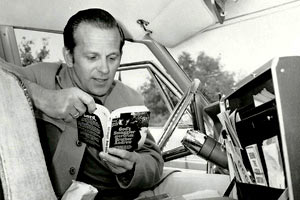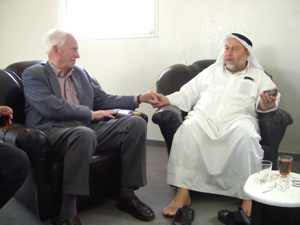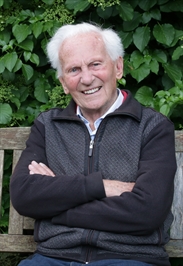In 2019, we voted as a Parish for four Mission Partners. Every two years we choose two new Mission Partners to support (and continue to support the remaining two).
We aim to support our Mission Partners through prayer, financial support, and building personal contacts. A percentage of our parish income goes annually to all 4 partners, plus everything raised through our special Lent and Christmas. In 2020, this amounted to £1,000 for each Partner.
Following a vote at our APCM on 30th April 2023, Prison Fellowship UK and Compassion UK joined Open Doors as our new Mission Partners.
Following the closure of Counselling4Yeovil in 2023, a vote was taken at the Annual Parochial Council Meeting at both churches on Sunday 21st April for a new charity to become our fourth mission partner. The fourth charity to become our Mission Partner going forward is CAP (Christians Against Poverty) Yeovil.
Our Mission Partners:
Compassion UK
Founded in 1952, Compassion is a leading Christian children’s charity.
Our approach to fighting poverty is highly focused and personal. You’ll be connected to and known by an individual child or children as their only sponsors. Through prayers and messages of encouragement, sponsors play a vital role in building the confidence of their sponsored child and affirming their worth in Christ.
Today, Compassion partners with more than 8,000 churches in 25 countries to deliver our proven child development programme to more than 2 million infants, children and youth. Around the world, children, families and entire communities are being empowered to overcome poverty and thrive both now and into the future.
Worldwide, 356 million children live in poverty*. Poverty robs children of their basic rights to learn, play and grow. It’s unacceptable.
Every child born into poverty faces a unique combination of challenges. That’s why our programme doesn’t just care for one area of a child’s life, giving them food or education in isolation, for example. Instead, our holistic child development programme empowers a child to overcome poverty in every area of their lives. We believe caring for a child’s mind, body, heart and spirit is the most effective way to release them from poverty, for good!
Holistic child development means we begin supporting a child in poverty, in some cases, when the child is still in the womb, and it means we go all the way through young adulthood with the child.
Open Doors
Open Doors originated in 1955, when a young Dutchman started smuggling Bibles to the persecuted church in Communist Europe. He became known as Brother Andrew, and his work led to more than six decades of support for the persecuted church.
Every day, millions of Christians risk their lives to follow Jesus. In more than 70 countries, Open Doors supports them by supplying Bibles, providing emergency relief and helping persecuted believers stand strong for the long-term. In the UK and Ireland, Open Doors helps the church to pray, give and speak out for those who share our faith but not our freedom.
The story of Brother Andrew (1928-2022) – God’s Smuggler
In 1955, a young Dutch missionary went to a Communist youth congress in Poland, at that time a part of the Soviet bloc. But he wasn’t a communist: he was a Christian. His suitcase contained his Bible, a change of clothes and hundreds of tracts entitled The Way of Salvation, which he intended to give away.
The trip was to change his life. Behind the Iron Curtain, he discovered churches desperately in need of Bibles, support and prayer. Above all, he found a group of Christians who felt isolated and alone and who thought the rest of the world had forgotten them.
One evening during that first visit, he went to a Baptist church in Warsaw where he was invited to speak. He tells the story in his best-selling book God’s Smuggler: “At the end of my little talk the pastor said the most interesting thing of all, ‘We want to thank you,’ he said, ‘for being here. Even if you had not said a word, just seeing you would have meant so much. We feel at times as if we are all alone in our struggle.”
That young man became known as Brother Andrew. And his trip changed the world.
Strengthen that which remains…
At the end of the trip, watching many thousands of delegates to the Youth Congress marching in a parade, Brother Andrew prayed about what God wanted him to do. He opened his Bible and found the passage which he came to see as a mission: “Wake Up! Strengthen what remains and is about to die.” Revelation 3:2

In subsequent years he was to travel many times behind the Iron Curtain, courageously putting his life on the line to smuggle Bibles at the height of the Cold War. His work went on to span many decades and geographic locations. In God’s Smuggler, Brother Andrew’s autobiography chronicling those early years, he details dangerous border crossings in his blue VW Beetle – which became known as ‘the miracle car’, for its ability to miraculously keep going. He developed a trademark prayer to say as he snuck Bibles and Christian literature across the border:
“Lord, in my luggage I have Scripture I want to take to Your children. When You were on earth, You made blind eyes see. Now, I pray, make seeing eyes blind. Do not let the guards see those things You do not want them to see.”
More than Bibles
As the work grew he was joined by others and began a work of smuggling Bibles to believers in Communist countries. And today, Brother Andrew’s small Dutch mission has become an international ministry working in more than 60 nations to strengthen the Persecuted Church.
Open Doors still distributes hundreds of thousands of Bibles and Christian books every year. But we also train and support persecuted Christians in other ways.
“When I first discovered a persecuted church behind the Iron Curtain the need was for Bibles,” says Brother Andrew. “But as our ministry expanded, other needs emerged. For example, in some countries pastors have little or no seminary training. We provide them with training so they can be more effective leaders of their congregations. In other regions Christians are discriminated against, denied education and quality job opportunities. So we may strengthen the church by providing small loans to help Christians start businesses. The needs and thus the strategies vary from country to country.”
Breaking barriers

Today, of course, Europe has changed. The main threat to Christians today comes not from Communism, but from radical Islam. Brother Andrew has travelled extensively in the Islamic world, talking to the leaders of Hamas, Islamic Jihad and Hezbollah. He is among the few Western leaders to regularly travel to the Middle East as an ambassador for Christ to these groups. He has also broken Christian religious barriers by preaching in Catholic and Coptic Orthodox churches.
Brother Andrew has received many honours and awards. He was knighted by Queen Beatrix of The Netherlands and, in 1997, he received of the World Evangelical Fellowship’s Religious Liberty Award, in recognition of his lifetime service to the Persecuted Church. But perhaps the recognition that pleases him most is the copies of the KGB reports, which he obtained after the fall of the Iron Curtain. There were more than 150 pages about him, detailing his work in the Soviet Union and Eastern Europe. They knew a lot about ‘Brother Andrew’, and yet they were still not able to stop his work.
He often has said, “Our very mission is called ‘Open Doors’ because we believe that any door is open, anytime and anywhere. I literally believe that. Every door is open to go in and proclaim Christ, as long as you are willing to go and are not worried about coming back.”
Everyday obedience

Brother Andrew’s story is extraordinary. But he himself is always at pains to stress that it was simply because he followed God.
“The real calling,” he has said, “is not a certain place or career but to everyday obedience. And that call is extended to every Christian, not just a select few.”
He would tell us as he has told many others, “The Bible is full of ordinary people who went to impossible places and did wondrous things simply because they decided to follow Jesus.”
Today, Open Doors has bases and staff all over the world. The next generation of ‘Brother Andrews’ still smuggle Bibles into regions that are hostile to the faith. They still go wherever needed to show the marginalised, isolated and persecuted Christians around the world that they are not forgotten and never alone.
Prison Fellowship UK
Over the years Christians in the UK have responded to Christ’s call to visit those in prison (Matthew 25). Reformers such as John Howard and Elizabeth Fry did much to alleviate the appalling prison conditions in the 18th and 19th centuries. Christians influenced 19th century prison legislation which provided for individual cells instead of dormitories and for the appointment of three members of staff – governor, doctor and chaplain.
Prison Fellowship in England and Wales

Sylvia Mary Alison believed God was calling her to develop Christian ministry in our prisons, but was not clear about the way forward. As an eighteen year old, she felt God’s clear call to minister to prisoners. At first she was “appalled and afraid”, but soon received a new vision:
“From that time forward the whole emphasis of my commitment changed. It was now no longer that I had to go to prisons and borstals, but rather that Jesus, out of his love for people, wanted to go into the prisons, and he was merely inviting me to go along with him.”*
In 1974, Sylvia and Michael Alison visited Washington DC and met Charles Colson, who had just founded Prison Fellowship in the USA. Sylvia believed this was the answer to her prayers, and so in 1979 Prison Fellowship England and Wales was founded.
Sylvia envisioned this brand new organisation growing and developing, “as all of us, of all denominations, of all sectors of society with different gifts and skills and roles and functions, brothers and sisters in Christ, met together and worshiped and prayed for the prisons and prisoners and looked to see what God would have us do. There would be little cells, twos and threes gathered together in Christ’s name, little nuclei to which more people could attach themselves, a group in the end for each of the 123 prisons in the country, a core group to take on the responsibility of being the centre of a far larger group.”*
Initially, Prison Fellowship was not allowed involvement within the prisons and was told that all they could do was pray. We have never regarded prayer as a ‘consolation prize’ but instead as a great privilege. Prayer groups were eventually established across the country to pray for every prison and these groups are still foundational to our work. We now have around 100 local groups, with committed volunteers praying for our prisons, supporting the work of chaplaincies and running PF programmes.
Christians Against Poverty (CAP) Yeovil

The Yeovil Christians Against Poverty (CAP) Debt Centre is one of 270 Centres in the UK and whilst based in St John’s Church Yeovil, the Centre is very much in partnership with other Churches in Yeovil and the surrounding area, and the award winning national debt charity Christians Against Poverty.
Whether people are feeling the weight of debt, struggling to find work or just need a bit of help budgeting – CAP can help and over 38,000 people a year are helped nationally through free debt help, job clubs and CAP Money Courses. The Yeovil Centre provides debt help and CAP Money Courses to help with budgeting.
CAP debt help
For those who think the situation is impossible when faced with unmanageable debt, our friendly team of trained debt coaches can bring hope and a solution. Our free service is available to everyone regardless of age, gender, faith and background and we visit people in their homes, listen to their situation and provide a real solution to their debts. For details, go to the national web site at www.capuk.org or in order to get help for yourself, please ring the National Help line on 0800 328 0006, where a friendly person will await your call.
CAP life skills
We now regularly run CAP Life Skills Courses. Money impacts all areas of our lives: what we can or can’t afford, our relationships, what we eat, our health and wellbeing and much more. CAP Life Skills is a friendly group where you’ll gain practical skills and discover new ways to live for a brighter future. So, if you want to see your money go further, find ways to save money, have more time time and less hassle in your day to day life, then Life Skills is for
All courses are free of charge and to find out additional information follow this link to our Life Skills page.
St John’s drop-in
At the Gone Fishing Cafe, which is held from 10:00am to 12noon every Thursday in St John’s, we have a ‘Drop-In’ where any client or anyone thinking about contacting CAP for help are very welcome to come and talk to a debt coach about their issues over a hot drink and cake.
Financial Support
If you wish to support CAP financially please go to https://givealittle.co/c/7ZKOTNZjHnQ1HNDKQonm3F to quickly give an amount. If you wish to gift aid your donation or support via regular giving please see the form here: https://sjyeovil.org.uk/standing-order-and-gift-aid/